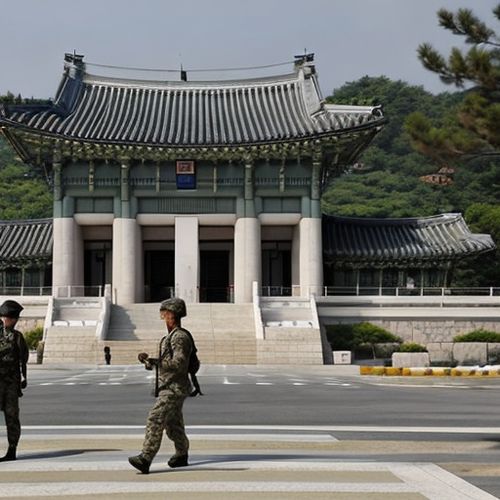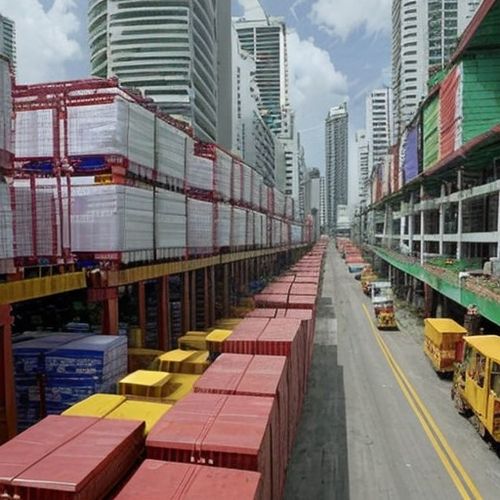Washington, April 14th - In a significant shift in diplomatic relations, the United States has announced its decision to place South Korea on the "Sensitive Countries" list, effective from April 15th. This move marks a notable change in the way the US approaches its relationship with one of its key allies in the Asia-Pacific region. The designation comes amidst a backdrop of evolving geopolitical dynamics and reflects a reassessment of security priorities.
The "Sensitive Countries" list is a classification system used by the US government to categorize nations based on the perceived risk they pose to American interests. Countries on this list are subject to heightened scrutiny and restrictions in areas such as trade, technology transfer, and intelligence sharing. The inclusion of South Korea, a long-standing ally, suggests a reevaluation of the strategic landscape and the potential risks associated with the country.
Historical Context and Alliance
The United States and South Korea have enjoyed a robust alliance for over seven decades, with the two countries working closely on a range of issues, including security, trade, and cultural exchange. The alliance has been a cornerstone of stability in the region, particularly in the face of North Korea's nuclear ambitions and China's growing influence. However, recent developments have led to a reexamination of this relationship.
Geopolitical Shifts
The decision to classify South Korea as a sensitive country is indicative of broader geopolitical shifts. As the US seeks to realign its global strategy to address emerging threats and challenges, it is increasingly focusing on the Indo-Pacific region. This reorientation has led to a more nuanced approach to traditional alliances, with the US looking to balance its commitments with a need to protect its own interests.
Economic and Technological Considerations
Economic and technological factors have also played a role in the US's decision. South Korea is a major player in the global technology sector, with companies like Samsung and LG leading the way in areas such as semiconductors and display technology. The US has expressed concerns about the potential for sensitive technology to be transferred to third parties, which could undermine American competitiveness and security.
Security Concerns
Security concerns have also driven the US's decision. While South Korea has been a stalwart ally in the face of North Korea's provocations, the US has grown increasingly wary of the potential for intelligence leaks and the risk of sensitive information falling into the wrong hands. This has led to a reassessment of the level of trust and the extent of cooperation that can be shared with South Korea.
Implications for the Alliance
The implications of this designation are far-reaching and could have significant consequences for the US-South Korea alliance. It may lead to a reevaluation of military cooperation, with the US potentially scaling back its presence or reassessing its commitments to joint defense initiatives. Economic ties may also be affected, with increased scrutiny on trade deals and technology transfers.
Diplomatic Fallout
Diplomatically, this move is likely to be met with concern and consternation in Seoul. South Korea has long prided itself on its close relationship with the US, and being labeled a sensitive country could be seen as a significant snub. It may lead to a reevaluation of South Korea's own foreign policy, with the country potentially seeking to diversify its partnerships and reduce its reliance on the US.
Public Perception and Future Relations
The public perception of this decision in both the US and South Korea will be critical. If the move is perceived as a sign of weakening ties, it could lead to a loss of trust and a cooling of relations. However, if it is seen as a necessary step to protect mutual interests, it may be accepted as a pragmatic measure. The future of US-South Korea relations will depend on how both sides navigate this new designation and work to maintain the integrity of their alliance.
The US's decision to designate South Korea as a sensitive country is a complex and multifaceted issue. It reflects a changing global landscape and the need for the US to adapt its strategies to protect its interests. While it may cause short-term strain in the alliance, it also presents an opportunity for both countries to reassess their relationship and work towards a stronger, more resilient partnership in the long

By Sophia Lewis/Apr 5, 2025

By Jessica Lee/Apr 5, 2025

By Emily Johnson/Apr 5, 2025

By Sophia Lewis/Apr 5, 2025

By George Bailey/Apr 5, 2025

By Amanda Phillips/Apr 5, 2025

By Emily Johnson/Apr 5, 2025

By Natalie Campbell/Apr 5, 2025

By Sarah Davis/Apr 5, 2025

By Laura Wilson/Apr 5, 2025

By Samuel Cooper/Apr 5, 2025

By James Moore/Apr 5, 2025

By Noah Bell/Apr 5, 2025

By Sarah Davis/Apr 5, 2025

By Ryan Martin/Apr 5, 2025

By Christopher Harris/Apr 5, 2025

By Noah Bell/Apr 5, 2025

By Thomas Roberts/Apr 5, 2025

By Michael Brown/Apr 5, 2025

By George Bailey/Apr 5, 2025